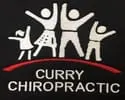Trigger points are painful nodules in muscular tissue, commonly found in the upper back, low back, and gluteal muscles. Trigger points are frequently chronic, persisting from day to day without much relief. When someone says, “My muscles are all in knots”, those knots are most likely trigger points.
The formal definition of a trigger point describes a localized region of tenderness, located in a tight band of muscle, which is associated with a palpable twitch in response to deep pressure over the tight band.1 Such deep pressure usually results in pain radiating from the trigger point to the surrounding soft tissues. Formally, if the twitch response is not present, the localized muscle tightness cannot accurately be termed a trigger point. It may also be argued that characterizing a local muscle “knot” as a trigger point requires the presence of the above mentioned radiating pain. These definitions are of importance when making decisions about appropriate care for painful muscle knots.
As with any care management decision-making process, some procedures make sense and others do not. Many so-called pain management physicians will recommend injecting painful trigger points with an anesthetic or even botulinum toxin.2,3 Such an invasive procedure is rarely required. Pain management practitioners and even specialists in internal medicine will recommend muscle relaxers such as Robaxin, Flexeril, or even Soma in attempts to diminish muscular pain in the shoulders or low back that may or may not be associated with the presence of trigger points. The problem with such medications is they do not address the underlying cause of the painful muscle knots. Further, their efficacy with respect to muscular pain is questionable.
The mistake, as is frequently the case, is in thinking of trigger points as a real entity. But trigger points do not exist in a vacuum. These painful muscle knots arise as a consequence of mechanical disturbances and stress in the rest of the body. Attempting to treat the trigger points themselves with injections or medications misses the real problem. Trigger points have arisen in a person’s shoulders or low back owing to chronic issues elsewhere, typically involving the spinal column itself and the small muscles that enable those vertebras to move in three-dimensional space.
Trigger points are best managed by directing care to the underlying issues, primarily involving loss of full mobility of spinal vertebras and resultant inflammation in spinal muscles. As with many other biomechanical problems, chiropractic care is often the best solution. By utilizing a specific, highly targeted, noninvasive approach, chiropractic care helps alleviate the factors that have led to the painful muscle spasms known as trigger points. As the underlying biomechanics improve, the trigger points themselves begin to resolve, all without the need for injections or medications.
1Fernández-de-las-Peñas C, Dommerholt J: Myofascial trigger points: peripheral or central phenomenon? Curr Rheumatol Rep 16(1):395, 2014
2Kim SA, et al: Ischemic compression after trigger point injection affect the treatment of myofascial trigger points. Ann Rehabil Med 37(4):541-546, 2013
3Zhou JY, Wang D: An update on botulinum toxin a injections of trigger points for myofascial pain. Curr Pain Headache Rep 18(1):386, 2014
